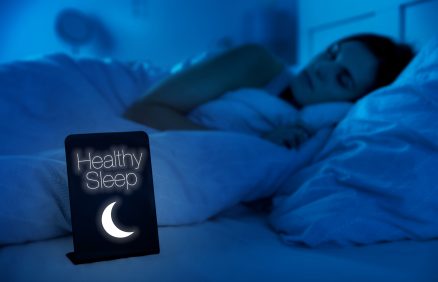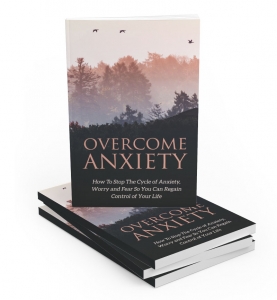
You know that sleep is important because when you don’t get enough of it you feel dreadful, but do you know why it’s so important?
When you sleep, your body rests but your brain is incredibly active. Sleep is its opportunity to download the day and effectively reset ahead of a new day. It’s a necessary part of the body’s recovery and it impacts the way you function both mentally and physically.
Consistent rest is necessary for immunity, disease-fighting, metabolism, concentration, memory building, and beyond. It’s what helps you reduce the risk of chronic disease and illness, and it impacts every part of your health.

The Importance of Sleep
“Not getting enough quality sleep regularly raises the risk of many diseases and disorders. These range from heart disease and stroke to obesity and dementia.” (https://www.nhlbi.nih.gov/health-topics/education-and-awareness/sleep-health)
The human body is truly incredible. What you eat and drink impacts your sleep and your sleep impacts what you eat and drink. There are plenty of foods that health professionals believe help with improving sleep, such as tart cherries and fatty fish.
There are foods that interrupt sleep, such as spicy food, alcohol, and caffeinated items. When you don’t get enough sleep, your body craves new sources of energy, which drives poor dietary decisions as you are more likely to consume more caffeine and choose foods high in fat and sugar (https://webmd.com)
That then impacts your ability to sleep again, and you enter into a vicious cycle. This can also impact your weight levels, which can influence your self-esteem.
As you lose out on sleep, you will notice the difference in your body and mind.
Mentally, you may notice a loss of concentration. It becomes difficult to focus on work, you may even struggle to come up with the right words. There may be memory issues because you are simply too tired to retain information.
Additionally, you will notice a change in mood.
That’s probably the most obvious – your nerves may be wearing thin, and you have a short fuse. You are more likely to snap at people and lose your temper easily.
Everyone is different, but your goal should be to get at least seven hours of sleep. As you start getting into a healthy sleep routine, you can track how well you feel and perform after seven hours, eight hours, or even nine hours of sleep. You may already have a good idea of your perfect number, but if you are one of those people who swears four hours is optimum – you’re lying to yourself.
According to the American Psychological Association, “Sleep is essential for a person’s health and wellbeing, according to the National Sleep Foundation (NSF). Yet millions of people do not get enough sleep and many suffer from lack of sleep.“
Sleep & Mental Health

According to the Sleep Foundation, “Both sleep and mental health are complex issues affected by a multitude of factors, but, given their close association, there is strong reason to believe that improving sleep can have a beneficial impact on mental health and can be a component of treating many psychiatric disorders.”
Positive mental health and good sleep are best friends. A good night’s sleep is essential for maintaining a positive baseline when it comes to overall mental health. A single night of poor sleep can wildly influence your mood and emotions the following day. Imagine how dramatic that influence is with chronic sleep issues.
That’s when anxiety becomes an issue, it’s when depression and other mental illnesses become an issue. It’s also much harder to deal with mental health issues when you are worn out and worn down.
Another issue that often comes with this is people with mental health issues will often self-medicate with alcohol, which further impacts one’s quality of sleep. A lot of people believe it helps them nod off, and while that may be true, it breaks up sleep.
If you’ve ever conked out after having too many drinks, you may recall tossing and turning throughout the night. If you drink alcohol, you should give your body time to fully process it before you sleep. One unit of alcohol takes one hour to process, which means you could have one glass of wine two hours before bed.
Your sleep pattern could benefit from a restful pre-bedtime routine that prepares your body for sleep. For example, reduce your alcohol intake before bed, reduce screen time in the run-up to bedtime, and pick up a book or meditate as you wind down.
When you get into a good bedtime routine, you will notice sleep comes easier, your sleep is more restful, and your mood and mental health will improve as you consistently get good sleep.
Daytime Routines Can Really Affect Your Sleep
According to the National Sleep Foundation, “The National Sleep Foundation’s 2024 Sleep in America® poll shows that Americans’ daily routines create some less-than-ideal conditions for a good night’s sleep. As it turns out, many Americans can do a better job at the good daytime behaviors that help improve our sleep.”
The National Sleep Foundation Recommends These Actions During The Daytime:
- Get a little sun
- Exercise
- Keep your mealtimes consistent
- Reduce or eliminate caffeine
3 More Ways to Ensure a Better Sleep

Set a Consistent Wake-Up Time
Often too much attention is given to the importance of going to bed at the same time every night, but this advice is unhelpful if the time you wake up in the morning varies dramatically.
You should strive to wake up at the same time every day because it helps regulate your daily sleep-wake cycle and ensure you get adequate rest (between 7 and 8 hours for most adults). You can’t expect to feel tired enough to go to bed at night in the absence of a daily routine. Even during the weekend, try not to deviate more than one hour from your weeknight routine.
Be Mindful of What You Eat and Drink
Avoid going to bed on a stomach that is overly stuffed or empty. Avoid large meals within a couple of hours of going to bed; otherwise, discomfort might affect your sleep quality.
Everyone knows that alcohol, caffeine, and nicotine have a substantial impact on physical health, but these substances might also be the reason why you’re not sleeping well at night. Caffeine and nicotine both stimulate the central nervous system and help you feel more awake; for this reason, most people know to avoid them when it’s getting close to bedtime (after 6 p.m.). On the other hand, people often turn to alcohol in the evening to help them relax, but as alcohol metabolizes in the bloodstream, it too disrupts sleep.
Allow Time To Unwind
Don’t wait until bedtime to take action on what’s worrying you. Learning to be proactive about managing worry during the day is important to easing nighttime anxiety. This can be as simple as putting some of your concerns into writing using a journal or getting organized and delegating tasks.
Effective stress management during the day gives you the space you need to unwind and relax at night. Taking a bath or using relaxation techniques may help you settle into bed more easily. Meditation is useful for stress management and relaxation.
In conclusion, almost everyone has a sleepless night on occasion, but if they occur with more frequency than you desire, don’t hesitate to talk to your healthcare provider. This is especially true if you have tried everything on this list to no avail. A doctor can help you identify and address the underlying causes of your sleeplessness and improve your sleep quality.
Please take the information in this article and use it
….and here’s to getting a great night’s sleep.
To Your Success,![]()




